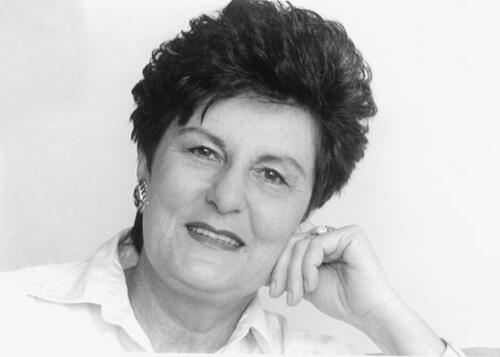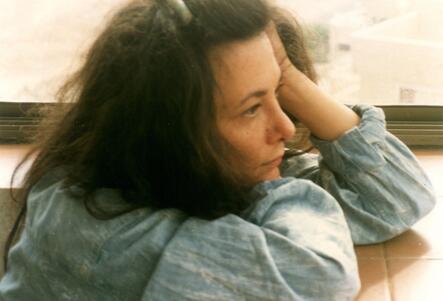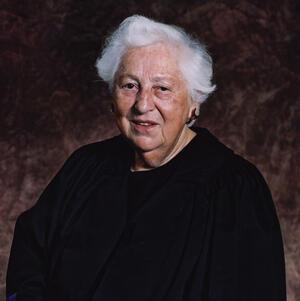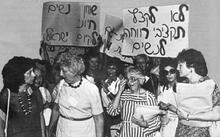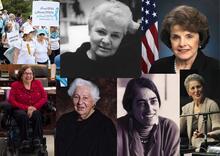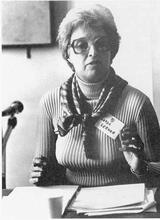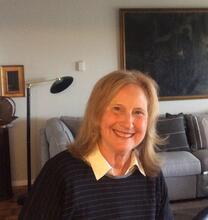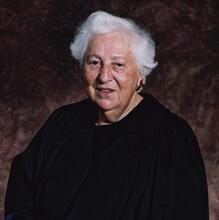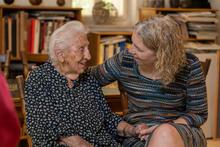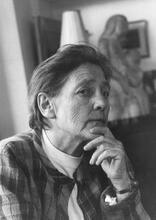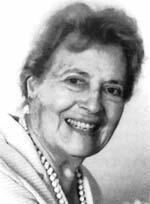Women's Studies in Israel
The history of Women’s Studies in Israel is intimately related to the history of the “New Women’s Liberation” movement of the 1970s.Women immigrants who had believed that Israel was an egalitarian country discovered that their expectations clashed with the reality of women’s situation. The movement set the stage for the establishment of Women and Gender Studies programs at the five Israeli universities: University of Haifa, Tel Aviv University, Bar Ilan University, and The Hebrew University of Jerusalem. These programs developed in fits and starts in the 1980s and 1990s, facing many challenges, especially a lack of university support. Women’s Studies programs also developed at Israeli colleges, and the Israeli Association for Feminist and gender Studies is a national organization of feminist scholars.
Women’s Studies Emerges Out of the Feminist Movement
The history of Women’s Studies (WS) in Israel cannot be examined without considering the related history of the “New Women’s Liberation” movement that began at the University of Haifa in 1970 (Safir et al.). Women immigrants from the United States and other English-speaking countries, who had believed that Israel was an egalitarian country, discovered that their expectations clashed strongly with the reality of women’s situation. This dissonance resulted in their creation of, and participation in, consciousness-raising groups that were the impetus for the new movement. The first Israeli women to refer to themselves as feminists were university lecturers and students. The movement spread first to Tel Aviv, where the activists were primarily non-academics, and then to Jerusalem, where, as in Haifa, it also initially attracted university students and graduates.
During the 1970s, Jewish feminists established women’s centers in Haifa, Tel Aviv, and Jerusalem and lectured on what would later be considered Women’s Studies topics in high schools, army bases, and A voluntary collective community, mainly agricultural, in which there is no private wealth and which is responsible for all the needs of its members and their families.kibbutzim. A feminist publishing house, The Second Sex, was founded in Tel Aviv, and a women’s health collective, led by university lecturers, was established in Beersheba. Activity at the University of Haifa continued. From 1971 to 1973, the core group met with Martha Mednick, a psychologist from Howard University in Washington, DC, who had come to study kibbutz women. Her account of the new feminist scholarship and the women’s studies programs that had begun to blossom in the United States planted the idea of initiating Women’s Studies in fertile ground at the University of Haifa.
As a result of this early feminist activity, informal faculty forums were created at other universities as well. Many of the participants in these forums later went on to establish the women’s studies programs of the 1980s and 1990s. In 1973, independently of the feminist groups spreading throughout the country, Mariam Mar’i led a consciousness-raising group in Acre that was composed of Arab college students and graduates. These activists eventually created the first training institute for Arab preschool feminist teachers, Dal Tiflal Arabi. In 1973, the first Women’s Studies text, a photocopied compendium of classical articles from abroad (some translated into Hebrew), was compiled—unofficially—by Dorit Padan-Eisenstark of Ben-Gurion University. Nine years later, in 1982, the first Hebrew textbook was published by Dafna N. Izraeli, Ariella Freedman, and Ruth Shrift. Individual WS-type courses (primarily in the social sciences) began appearing at the various universities during the mid- to late 1970s. Feminist scholars within and beyond Israel’s borders began to challenge the generally accepted myth of women’s equality in Israel from the pre-state era to the present. The women’s forums at the Hebrew University and the University of Haifa began to plan programs for Women’s Studies.
The connection between local and international feminism can be illustrated by the First International Interdisciplinary Congress on Women: Women’s Worlds, held at the University of Haifa in 1981. This Congress was chaired by Marilyn Safir, co-chaired by Dafna Izraeli and Martha Mednick, and co-sponsored by the Society for the Psychology of Women (Division 35) of the American Psychological Association and the University of Haifa. (Later Congresses were cosponsored by other international women’s academic organizations as well.) The congress resonated both nationally and internationally. More than 700 participants from 36 countries, many of whom were world-renowned scholars, presented papers and participated in conference activities. The conference received intensive local and international media coverage. The New York Times’s front-page article praised it for providing a forum at which feminist scholars from the humanities and social sciences might form an international network. Donna Shalala, President of Hunter College at the time, stressed the importance of establishing WS programs at universities, first in her keynote address and later in interviews quoted widely in the national and international media. The congress enabled the establishment of an international network of WS scholars who have participated in subsequent congresses every three years ever since, hosted by countries around the world. The 2020 congress was to be held in Mozambique but was canceled because of the Covid-19 pandemic.
Establishment of the Women’s Studies Programs
During the Haifa congress in 1981, the Hebrew University Senate approved the establishment of the Program for the Study of Sex Differences in Society. (When program organizers Galia Golan and Amia Lieblich originally sought faculty support for their proposal for a WS Program, they were dismissed with the claim that Women’s Studies was not an academic discipline; “sex differences” was apparently a more acceptable field [Galia Golan, personal communication 1983].) In 1982, Senate approval of a Women’s Studies program at the University of Haifa went smoothly, with funding for introductory courses supplied by Naamat, Israel’s largest women’s organization, from 1983 to 1988. (Naamat is an acronym of the first letters of Nashim Ovdot U'Mitnadvot, Working and Volunteering Women; the organization is associated with the Israeli Labor party, has branches worldwide, and is connected with the World Labor Association.)
In 1984, Arlette Adler (who directed a program for students from Middle Eastern backgrounds) created a unique project at the University of Haifa entitled Kidma (an acronym for the Project for the Advancement and Involvement of Women in Society). A major aim was to bring WS topics to women who would not ordinarily be a part of the university community, by inviting them to the university and bringing the university into their communities. These were women from outlying villages, both Jewish and Arab, as well as women living in moshavim (collective farming villages) and women who might not have completed primary and secondary education. A major goal was to acquaint these women with their civil and social rights and to strengthen their links to their communities, beyond their families. The connection between Kidma and the Women’s Studies program was intense. Many of Kidma’s faculty came from the WS program and students often volunteered to do community organizing. Marilyn Safir worked with Adler to establish Kidma and served as the program’s academic head, becoming director on Adler’s retirement in 1996. Kidma closed in 2004 due to lack of funding.
The 1980s also saw the diversification of the feminist movement. For example, feminists from the secular kibbutz movements persuaded their federations to create Departments for the Advancement of Sex Equality. Lecturers from WS programs were invited to give talks on relevant topics at various kibbutzim. Lesbians organized Klaf, the Community of Lesbian Feminists, whose members often presented lectures in university WS classes. Lit. "Eastern." Jew from Arab or Muslim country.Mizrahi feminists, most of them students or college graduates, organized to explore the connection between gender and ethnic oppression in Israel. Vicki Shiran was one of the founders of this group, which was responding to what members saw as the insularity of the feminist movement, with its focus on issues relevant to mainstream Jews of European origin and their descendants, including most of North and South American Jewry.Ashkenazi middle-class women. This group, incorporated in 1999 as Achoti (My Sister), the Mizrahi Feminist Movement in Israel and still active today, organized to explore the connection between gender and ethnic oppression in Israel. Its goal was to promote “economic, social and cultural justice, and solidarity with women of low socio-economic status in Israel.” Orthodox Jewish feminists (most of them students or college graduates) also set up study groups and all-women prayer groups. Women of the Wall, a religiously pluralist group that insists on women’s right to group prayer at the Western Wall in Jerusalem, including Torah reading and the wearing of prayer shawls, was established in 1988 and is still active today.
The mid-1980s saw the creation of feminist organizations and frameworks that extended beyond the local sphere to become national in scope. These included the Israel Women’s Network (IWN), a feminist non-partisan civil society organization established in 1984, following a meeting of Israeli and American women entitled “Woman as Jew; Jew as Woman.” The meeting was sponsored by the American Jewish Congress (AJC) and organized by Harriet Kurlander of AJC’s Women’s division, assisted by Marilyn Safir in Israel. Alice Shalvi, active in the Women’s Forum at the Hebrew University in Jerusalem, was among IWN’s founders and served as its first chairwoman, with Noami Nevot as Vice Chair. A majority of the co-founders and members of the first IWN board were feminist scholars. The Network has engaged in, and strengthened and developed a plethora of activities on, a wide range of issues, including women’s political representation, women’s employment rights, and women’s health, and it has co-sponsored many public meetings and projects with various WS programs. IWN has raised public awareness of these important issues, continuously bringing social problems to the forefront and working to bring about positive change and increase women’s rights in Israel.
These early feminist activities had an impact on academic life. By 1994, four of the five Israeli universities offered WS programs: The Hebrew University of Jerusalem, The University of Haifa, Tel Aviv University, and Ben-Gurion University (Beersheba). The various programs had somewhat different structures, foci, and names. All offered only minors, not majors, and received neither budget nor faculty lines. The Hebrew University’s program on The Study of Sex Differences in Society opened at the end of 1982. Since this name emphasizes the sex differences between the genders, feminist scholars viewed it as traditional and negative. Indeed, research had demonstrated that many so-called “sex differences” are socially constructed, not based on biology. Consequently, WS programs such as the one that opened at the University of Haifa in 1983 have been designed to focus on the similarities between the genders, which were minimized or ignored when the focus was on sex differences. Their goal has been to challenge detrimental social beliefs about women, inspire research, spread knowledge, and encourage social change resulting from latest research.
The Evolution of Women’s Studies at The University of Haifa
The Haifa program clearly evolved from the feminist movement of the 1970s, combining activism with academic pursuits. This was also the largest WS-B.A. minor program (offering a double minor) through early 1990s. The original program was based on three required core courses that specifically focused on feminist theory and philosophy: Psychology of Women, the Status of Women in Israel, and Women’s Movements as Political Movements. These courses were taught respectively by Marilyn Safir (Psychology), Deborah Bernstein (Sociology), and Dafna Sharfman (Political Science), three of the five program founders (the other two were Naomi Golan, Chair of Social Work, and Judith Hill, from the English department). Marilyn Safir became the Chair of the WS program and served in this capacity for ten years. Since 1986, an “Introduction to WS” course has presented the basic tools necessary to analyze the status of women in society, including the concept of gender and issues of androcentrism in the various disciplines. Course lectures were combined with discussions in small groups, inspired by the consciousness-raising groups of the early 1960s and 1970s. These workshops enabled students to connect “the personal and the political” and to relate the subject matter and bibliography to their own lives. Instructors in this course were originally drawn from a pool of lecturers, researchers, and activists until Dr. Sharon Halevi, a WS scholar, was hired for the American History Department in 1996. By the 1993–1994 academic year, almost ten percent of the freshman class enrolled in the “Introduction to WS” course. More than 55 courses were cross-listed in the Social Sciences, Humanities, Education, and Social Work faculties—from every department except Mathematics/Statistics and Economics. The students, primarily women, came from all sectors of Israeli society. The WS program at the University of Haifa served as an efficient bridge between academia and feminist grass-roots organizations in the city. This interaction encouraged feminist activists to begin their studies or return to academia and involved students in various feminist grass-roots organizations. The diversity among participants gave them opportunities to comprehend how being a woman in Israeli society affects each person differently, according to her cultural background and experiences, and how this is related to double oppression, issues that were being discussed in United States. Israeli feminists and WS activists have grappled with multiculturalism and diversity since the mid-1980s.
Professor Aliza Shenhar, the first woman in Israel to be elected rector of a university (Haifa, 1991), granted the WS program a half-time faculty post and offered funding for a full-time graduate student to serve as coordinator. Prior to her election as rector, Shenhar had served as chair of the General Studies Program, where, in 1985, the WS program found its permanent home. During this same period, project Kidma began offering courses for academic credit to women living in local communities who were unable to enroll or attend the university. The first courses, sponsored by Naamat, were offered in Karmiel to attract women to begin or to complete academic studies. Indeed, several women began their university studies as a result of this program. After Shenhar left the University of Haifa in 1994 to serve as Israel’s ambassador to Russia, the funding she had granted to the WS program was gradually redirected for uses not connected with WS. Unfortunately, this has been a common occurrence. Rather than finding additional funding and support for these extremely popular programs, primarily male department chairs and rectors in the majority of universities and colleges often siphoned off the programs’ support. Despite its leading role in the previous decades, the University of Haifa has been unsuccessful in obtaining external funding to establish a stand-alone Women and Gender Studies Department. As a result (as in all of these interdisciplinary programs), many courses are taught by feminist scholars located in various departments and are crosslisted in WS. Most programs also employ external adjunct faculty, primarily women who are hired to teach a WS course or two. As contracts are renewed yearly, these instructors gain no academic advancement nor social benefits.
Meanwhile, Deborah Bernstein, who chaired the WS program in Haifa from 1996 to 2001, began working on the development of an interdisciplinary M.A. in Women’s Studies. By the spring of 2003, Tamar Katriel, who served as the chair in 2001, had successfully negotiated approval for this interdisciplinary M.A. Program in Women’s and Gender Studies, which opened in October 2012. Professor Nitza Ben-Dov and Dr. Sharon Halevi served as co-chairs of the program between 2012 and 2016. As of 2021, the program, which currently emphasizes the multidisciplinary M.A., is directed by Dr. Sara Cohen Shabot.
Feminist activists in the University of Haifa’s Faculty of Law founded a clinic called Mentoring Program for Women’s Rights and Feminist Law, under the direction of Prof. Noya Rimalt. The clinic was originally funded by the NGO Itach-Machi. Since 2011, it has been headed by Dr. Arianne Renan Barzilay and functions as an arena for the education of young legal scholars on feminist legal thought, feminist theories, feminist histories, strategies of social activism, and feminist research methods. Students conduct feminist legal research under Barzilay’s guidance. Their legal work on behalf of clients is directed by Advocate Vardit Avidan. The clinic is a bridge between academia and activism and has advocated for a variety of issues, such as “Suit to Silence,” following allegations of sexual misconduct; gender discrimination; intersex rights; and gynecological safety. The group identified a new form of violence and coercion, “economic abuse,” in which men employ economic means to subordinate and control women. The growing interest in economic abuse has resulted in articles, lectures, successful lobbying, nationwide awareness, and pending corrective legislation. The clinic continues to conduct research and aid women struggling with economic abuse.
The University of Haifa’s feminist Law Faculty also established the Forum for Gender, Law and Policy, opened in 2014 under Prof. Noya Rimalt and Prof. Shulamit Almog with the aim of supporting feminist legal research and activism in Israel. The Forum is the first academic platform to advance research, instruction, legal training, community outreach, and public policy initiatives encompassing topics of gender inequality in Israel. It aims to promote progress through legal reform, develop and disseminate knowledge about gender equality, and advance research and teaching in this area. The Forum plans to initiate public debate on issues of gender inequality within government offices and among legislators, judges, lawyers, academics, as well as among feminist field organizations in Israel and worldwide. It has made significant steps in promoting legal reform through the criminalization of prostitution and has been involved in efforts to reform Israeli abortion law.
Through the 1980s, social work curricula were based on traditional psychodynamic and “family-system” theories that perpetuated stereotypical and biased beliefs about the biological basis of men and women’s roles in the family. The various social work programs lagged behind the growing interest in Women’s and Gender Studies and had examined neither the social construction of these roles, nor how traditional programs might reinforce negative situations for women in society. In 1991, the Ministry of Social Welfare’s Department for Women and Girls in Crisis, headed by Dr.Yosefa Steiner and Ada Pliel Trossman, requested that the University of Haifa’s WS program and Project Kidma develop a postgraduate WS program for experienced social workers. The course was designed to expose social workers to new feminist theories about women, gender, sexuality, and therapy and to raise their consciousness about the negative impact that could result from these very traditional programs. A special feature focused on feminist theories of violence against women, previously non-existent in the social-work curriculum. Upon completion of this program, social workers became agents of change in their own agencies and experts on issues concerning women and violence against women. The model developed for this program has been incorporated into social work programs throughout Israel. In 1992, WS coordinators began to lecture in the University of Haifa Social Work program on feminist theories of therapy and violence against women, encouraging students to become involved in feminist organizations, shelters, rape-crises centers, and the hotline for battered women. As a result of the cooperation between the University of Haifa’s WS program and the Ministry of Social Welfare, these changes have had a nationwide impact on the curriculum of all the schools of social work in Israel.
Women’s Studies at Tel Aviv University
Tel Aviv University’s Women and Gender Studies Program evolved from its Women’s Studies Forum. Since Tel Aviv University was centrally located and there was great interest in the topics presented, beginning in the early 1980s the Forum’s informal monthly meetings and lectures attracted feminist faculty researchers from all the Israeli universities. The university provided a large lecture hall for the Forum’s monthly Friday meetings. The Forum was officially established in 1986, as a result of a donation from the Deborah Netzer Foundation. It was organized by Rina Shapira and Delilah Amir, an an adjunct teacher who directed it on a volunteer basis for ten years. In contrast to the University of Haifa’s lack of success in securing financial support for WS, Tel Aviv University’s Forum succeeded in attracting several endowments to fund student scholarships.
Feminist faculty members both lectured in the Forum and taught individual WS courses, leading to the establishment in 1988 of a program called The Study of Differences between Women and Men, a title that the faculty later changed to the Program for Gender Studies. A WS concentration for an M.A. in Sociology was opened three years later. While not a full M.A. program in Women’s Studies, this was the first Israeli program that enabled students to focus on WS in a graduate program. The following year, two separate undergraduate minor programs were established, one in the social sciences and the other in the humanities, and the first students enrolled in 2001 (Singer, 2002). Earlier, major progress had occurred in 1998, when a contract was signed by the (US) National Council of Jewish Women (NCJW) and Tel Aviv University’s first female rector, Nili Cohen, who was actively seeking ways to support the development of the WS program. This agreement included a permanent endowment to establish the first interdisciplinary undergraduate B.A. program in Women’s and Gender Studies at an Israeli university, indeed in the entire Middle East. Tel Aviv University’s Women’s Studies program was also the first program recognized by the Israel (State) Council of Higher Education (MALAG) to grant a B.A. in Women and Gender Studies. As of the early 2020s, over 100 courses in WS are offered through the faculties of Law, Humanities, Art, and the Social Sciences. The first degrees were granted in Summer 2007. The Program was chaired for its first six years by Hanna Naveh, followed by Orly Lubin, Tovi Fenster, Hanna Herzog, and Smadar Shiffman (z "l). The current program chair is Daphna Hacker, a professor with a joint appointment in WS and the Law School. The program’s Alumni Association was opened in 2017 and has over 500 members.
Women’s Studies at Bar-Ilan University
Bar-Ilan University is a good example of internal change and the power of university support for a Women’s Studies program. In the mid-1980s, Dafna Izraeli tried unsuccessfully to establish a WS program. Henriette Dahan Kalev, who had recently completed her PhD in Political Science, was asked by the female departmentt chair if she would be interested in joining the faculty. At the very last stage of the process, the chair informed her that she could not offer her the position because she had been told she had hired too many women in the previous two years. Fortunately, in 1998, Bar-Ilan’s Senate decided to develop its graduate programs and to move toward greater interdisciplinary work, and Izraeli finally succeeded in convincing the Senate that Women’s Studies was an important and relevant academic area. She was asked to develop a graduate program in Gender Studies; her proposal was finalized in 1998–1999 and opened in 2000 as the Interdisciplinary Graduate Program in Gender Studies, granting both M.A. and Ph.D. degrees, with Izraeli as chair. As a result of Izrael’s efforts, in 2002 Bar Ilan opened the first program in Israel that enabled students to complete an M.A.in Gender Studies with or without a thesis. In 2003, the program in Gender Studies was incorporated into the newly established Rachel and J. L. Gewurz Center for Gender Research. Following Izrael’s death in 2003, the center was reorganized as the Dafna Izraeli Center for Gender and Women's Studies. At Bar Ilan, M.A. students can focus on research and theoretical foundations or provide basis for feminist actions in field work. BIU’s program is very interdisciplinary, combining history, sociology, literature, education, psychology religion, and philosophy. The program includes two units that are unique in Israel: the Center for Masculinity Studies and the Incubator for Feminist Activism, both of which provide support for social change. Though a late bloomer in the field of WS, Bar-Ilan University now has the broadest range of activities as a result of the university’s commitment to establishing these programs and its success in raising funds to found additional institutes that focus on women.
Through the end of 2020, 420 students had completed an M.A. degree and 90 a Ph.D. degree in gender studies at Bar-Ilan. Professor. Upon Izrael’s death, Prof. Tova Cohen became chair of the program, followed by Prof. Rachel Ben-Ari and Prof. Slavia Adler, and Prof. Rivka Tuval-Moshiach. When Tuval-Moshiach’s term ends at the end of 2021, she will be replaced by Dr. Ronit Ir-Shai, who received her Ph.D. in this program.
Several other centers and programs were also established at Bar-Ilan. The Fanny Gottesfeld-Heller enter for the Study of Women in Judaism, directed by Prof. Tova Cohen, was established in 1998, and the Ruth and Emanuel Rackman Center for the Advancement of the Status of Women (based in the Law School), was established in 2000 and has been headed continually by Prof. Ruth Halperin-Kaddari. The major advancements made by the various WS programs at Bar-Ilan have for the most part resulted from large external endowments made by foreign donors. Not only is major university financial support still lacking in spite of student interest and strong support from gender studies faculty, but in several cases resources that were actually assigned to the various Women’s Studies programs were often re-appropriated for use by other programs. Many courses that are central to these programs are taught by external lecturers, who are not integrated into the academic establishment.
Women’s Studies at Ben-Gurion University
When Ben-Gurion University’s B.A. minor program (founded by Ilana Luria) was established in 1989, it still needed to be called The Program for the Study of Sex Differences in Society in order to gain approval. WS programs focus on the similarities between men and women and advocate for societal changes to remedy inequality. By contrast, programs entitled “Sex Differences” traditionally placed an emphasis on between-sex differences, traditionally a male orientation that was viewed as more “objective” and that has been rejected by most WS scholars.
Political scientist Henriette Dahan Kalev, whose research focused on Mizrahi women, was hired by the Communications Department. However, she was denied tenure in 1999 by the Faculty of Management because they claimed her reseach was not relevant to Communications, resulting in a university-wide protest in 2000. Dahan Kalev was reinstated and given the opportunity to found a Gender Studies department, replacing the minor program, with the support of university president Avishay Braverman. A team composed of Dahan Kalev, Nitza Berkovitch, and Niza Yanay was appointed to design the program, which would focus on social change; the final proposal was submitted by Dahan Kalev in 2003. However, Dahan Kalev was only able to open the program in 2007; despite the support of the university president, there was widespread resistance among the faculty, leading to numerous discussions, struggles, lobbying, and the transferring of the program to several committees for evaluation and approval (the faculty committee, the Senate academic committee, and the financial and accountant committees). Formal discussions continued in the Commission for Higher Education, the Israel (State) Commission on Higher Education, and the Israel Planning and Budgeting Committees, the latter two responsible for coordinating Israel’s higher education policy. Dahan Kalev took this difficult path to establish the program because she was aware that external sources of funding can disappear and relying on them can result in program closure. The program recieived final approval in 2007 and budgeted for 40 graduate students and allocated 3.5 tenure track positions. At the same time, university authorities informed Dahan Kalev that unless 40 graduate students registered in this first year (an unrealistic demand), she would not receive all the tenure track positions. A relatively new faculty member, Dahan Kalev was unaware that this unacceptable move resulted from manipulation by senior faculty. The positions were distributed to other departments and the program opened with only one tenure track WS position. Fifty scholars from Israel, the United States, and Europe applied and Amalia Ziv was selected for the position. However, the university’s rector informed Dahan Kalav that he was appropriating half of the appointment for the wife of a new male faculty member in the Department of Politics and Government, who had conditioned his acceptance of a position at Ben-Gurion on his wife also receiving a faculty position. The Rector’s candidate was not a Women and Gender Studies scholar, but to Dahan Kalev’s amazement, the rector simply said: “Don’t worry, she will catch up and become a gender scholar.” Dahan Kalev managed to expand the number of tenure track appointments; she retired in 2015 but remains active in the department. In addition to the usual Women’s Studies and Gender Studies courses, BGU offers a concentration in Sexuality Studies: Queer theory, Transgender Studies, Gender and Sexuality, as well as Gender and Urban studies, Women and the Periphery, Gender and Critical Race Studies, and Legal Gender Sstudies. The Gender Studies Program at BGU offers a B.A. degree, a full M.A. degree, and a Ph.D. program. Henriette Dahan Kalev was the first department chair, followed by Niza Yanay, Catherine Rottenberg, Amalia Ziv, and Ilana Rosen. As of 2021, Bar-Ilan and BGU are the only Israeli universities that award Ph.D. degrees in Women’s Studies.
Critical financial support for the five Israeli universities’ WS programs was provided by feminist members of US/Israel Women to Women, formed in 1982 by Virginia Snitow to raise money to fund feminist projects in Israel. A major project, beginning in 1985 and eventually encompassing all five universities, was the sponsorship of a series of WS public lectures—the Virginia L. Snitow Lecture Series. This public lecture series (with five to seven lectures a year at each university) strengthened the connections between the universities’ WS programs and their communities. In addition, US/Israel Women to Women periodically funded university courses that otherwise might not have been offered, such as Women in the Arab World, taught by Dr. Mariam Mar’I and later by Nabila Espanioly at Haifa University; this was the first Israeli WS course taught by an Arab woman. Unfortunately, US/Israel disbanded following Snitow’s death in 2000.
The Schechter Institute of Jewish Studies
The Schechter Institute of Jewish Studies was established in Jerusalem 1984 as an institute of higher learning. It offers an M.A. in Jewish Studies, a degree recognized by the Council of Higher Education. In contrast to the conservative views of women in traditional Jewish religious society, a program centering on Jewish Women and Gender Studies was founded by Dr. Debbie Weissman in 1994; since 1996, Prof. Renée Levine Melammed has been responsible for this interdisciplinary track, the first in an Israeli institution of higher learning to combine Jewish Studies with gender. In addition to courses on feminist theory and its repercussions for Judaism, the program offers courses on gender and The legal corpus of Jewish laws and observances as prescribed in the Torah and interpreted by rabbinic authorities, beginning with those of the Mishnah and Talmud.halakhah, women in the Bible, Jewish women in historical perspective, and many more courses in literature, Jewish thought, history, Zionism, art, and anthropology. The program’s title was changed to Gender and Feminist Studies in 2018 in order to incorporate courses of a more practical nature. The program has been popular and successful, attracting students from all over Israel and from different stages in life and careers.
In 1997, veteran editor Deborah Greniman, who had studied for her M.A. in Jewish Women's and Gender Studies at the Schechter Institute, broached to staff at the Schechter Institute the idea of starting an academic journal of Jewish Women's Studies. The staff responded with enthusiasm and invited what was then the Hadassah International Research Institute on Jewish Women at Brandeis University (now the Hadassah-Brandeis Institute), headed by Professors Shulamit Reinharz and Sylvia Barack Fishman, to partner with it in publishing the journal. The first issue of NASHIM: A Journal of Jewish Women's Studies and Gender Issues was published in 1998 under the auspices of both institutions, with Deborah Greniman as the managing editor. Since 2003, NASHIM has been edited jointly by Renée Levine Melammed as academic editor and Deborah Greniman as managing editor. It is published by Indiana University Press under the auspices of the Schechter Institute of Jewish Studies and the Hadassah-Brandeis Institute, under the leadership of Professor Lisa Fishbayn Joffe since 2017.
Women’s Studies at Israeli Colleges
Establishment of WS programs at Israeli colleges, which usually do not offer advanced degrees, lagged behind the universities through the mid-1990s, although most colleges offered one or two WS courses. In 1994, Sylvie Fogiel-Bijaoui succeeded in establishing the first center at such a college: The Center for Research on Gender at Beit Berl College for Education. Unfortunately, the center was closed in 2002 (Bijaoui, 2003). However, four feminist scholars—Vicki Shiran, Esther Herzog, Riva Bacharach, and Erella Shadmi—succeeded in 2003 in establishing a WS program, headed by Vicki Shiran, in cooperation with the Open University. This program was different from the traditional WS programs, with a radical and critical focus on women from the Middle East and other marginalized social groups, such as Black and lesbian women. In addition, the founders organized a widely attended annual national conference. Upon Shiran’s untimely death in 2004, Erella Shadmi became the program head, but the program closed in 2010 for lack of funding. As of 2021, courses in Gender Studies are offered through the department of Social Studies.
In 1998 Michal Palgi founded the Gender Studies Program at Emek Yezreel College, which she directed. Unfortunately this program was also closed for lack of funding. The Center for Gender Equity in Education opened in the fall of 1994 at the Kibbutzim College of Education (also known as Seminar ha-Kibbutzim), with Malka Enker as its founding director. Enker accepted this role following a commitment from her colleagues that the chair would be rotated and all of the program members would fill this position. The center undertook a variety of projects aimed at finding ways to work towards gender equity within the existing system. A core curriculum in gender equity was offered that consisted of a cluster of interdisciplinary courses specifically designed to examine the validity of concepts, theories, and generalizations in the various fields of study from a feminist perspective in education. The center also developed in-service training programs for practicing teachers and workshops for university staff and students on prevention of sexual harassment. Unfortunately, this program was also discontinued. Currently, Seminar ha-Kibbutzim college hosts an Education and Gender Forum.
As a result of continuing feminist and WS activists’ efforts, nonsexist materials for primary and secondary schools are increasingly available, although most primary and secondary schools continue to use older texts because of limited funds. One early program was published by the Ministry of Education’s Family and Sex Education Office. A more comprehensive project, To Be a Boy, To Be a Girl, Does It Really Matter? (Ben Tsvi-Mayer, 1985), for junior high school students, was developed at Oranim College of Education. It included one unit on sexism and language and another unit for English as a second language. The preschool feminist teacher training institute Dal Tiflal Arabi in Acre has been at the forefront in developing gender-fair teaching material for Arab students.
The Israeli Association for Feminist and Gender Studies
Although discussions on the formation of an Israeli WS Association began in 1983, the idea gained momentum only in 1996, following a meeting called by Sylvie Fogiel-Bijaoui at Beit Berl College. Veteran and new WS scholars from all the universities and several colleges responded and the Israel Association for Feminist and Gender Studies (IAFGS) was finally established in 1998. Until elections were held in 1999, the organization was run by a steering committee composed of Bijaoui and Ruth Halperin-Kaddari of Bar-Ilan University, Orna Sasson-Levy and Galia Golan of The Hebrew University, Elana Luria from Ben-Gurion University, Ariela Friedman and Orly Lubin of Tel Aviv University, and Sharon Halevi, Hanna Safran, and Marilyn Safir from University of Haifa. A major goal of the new organization was to strengthen the ties between, and broaden cooperation among, WS scholars in academia and activists in the field. Other major goals included the initiation of new courses and the development of new programs in Israel, the encouragement and advancement of feminist scholars within academic institutions, and the establishment of networks for researchers and teachers. Organizers agreed that an annual conference held in different areas of the country was imperative for achieving this goal. Indeed, the IAFGS has had an ongoing commitment to enabling representation of the various sectors of Israeli society as well as of the geographic areas; members were encouraged to keep these goals in mind when voting. The first board, elected in 1999, was composed of Hawla Abu Baker, Sylvie Fogiel-Bijaoui, Sharon Halevi, Dafna Lemish, Pnina Motzafi-Haller, and Elana Luria, with Marilyn Safir serving as the first president. Membership eligibility was based on self-definition as a feminist scholar and/or researcher. The Association was hosted by project Kidma in the Kidma offices at the University of Haifa. When Kidma closed in 2002 because of lack of funds, IAFGS found a new home at Bar-Ilan University in 2003
While the IAFGS was in formation, a serendipitous meeting in 1997 between Galia Golan and Alison Bernstein, a vice president in the Education Division of the Ford Foundation, took place. Golan told Bernstein of the exciting developments in WS in Israel and of difficulties encountered because of lack of funding. Ultimately, this meeting resulted in the Ford Foundation funding not only each of the programs at the five universities but also the IAFGS, beginning in 1999. The Ford Foundation grants greatly enhanced the status of WS within the academic community. The IAFGS has been self-funded to a great extent through paying voluntary dues and donations as well as members volunteering their time, but the Ford funding supported the IAFG newsletter through 2009. Originally edited by Dafna Lemish and Sharon Halevi, the newsletter was later greatly expanded by Yaffah Berlovitz and Yael Rozen, thereby expanding the WS community. Frances Raday was elected the second chair in 2003; Yaffah Berlovitz was elected chair in 2009. Through Berlovitz’s efforts, the IAFGS launched a website in 2010 that made information about the organization and about the various women and gender studies programs and publications available to the general public. In addition, Berlovitz established a database of lecturers and researchers willing to work with students in these programs. In 2012, IAFGS established a digital academic journal, GENDER, edited by Yochi Shelach and Orly Tzarfati and supported by the Family Foundation for Women Scholars and Students, in memory of Sarah Beker and Esther Berlovitz.
At the end of 2017, IAFGS launched a bi-weekly newsletter, The Online Newsletter of the Israeli Association for Feminist Studies and Gender Studies, edited by Yaffah Berlowitz and Roni Ben-Canaan. It has around 1000 subscribers, including individuals and institutions, and aims to establish a community of association members and anyone interested in the fields of Women and Gender Studies. The newsletter combines academic knowledge and current information about activities occurring in universities, colleges, and women’s organizations throughout Israel. The section “Feminist Research” presents summaries of the latest feminist research; “On the Shelf” enables researchers to present their most recent academic books, including book covers; “Women Remember Women” focuses on feminist researchers from Israel and from across the globe, as well as from Israeli’s past, many of whom have been forgotten or overlooked; “Important Conventions/Lectures” provides summaries of conferences and lectures occurring during the previous two weeks throughout Israel. Finally, “Please Meet” introduces outstanding and award-winning lecturers and students, including female students who have completed doctoral dissertations, as well as feminist events occurring in academia and throughout Israel.
IAFGS also hosts a nationwide Women and Gender Book Celebration, held at a different university each year during Hebrew Book Week Celebrations in June. The Association has also prepared and published a reader (in Hebrew), Learning Feminism: A Reader; Fundamental Documents and Articles in Feminist Thought. IAFGS has also aided both women and Gender Studies lecturers experiencing difficulties with promotion or facing dismissal. All Israeli universities now have a faculty member who is appointed to focus on the status of women within the university, and the Association is in continuous contact with these officers. It also collaborates with women’s and feminist organizations throughout Israel. The Association’s successes are the result of extraordinary inter-university women and gender studies faculty volunteering, cooperation and support.
The Current Status of Women’s and Gender Studies Programs in Israeli Institutions of Higher Education
In the 1980s and 1990s, as the various programs were being established, being a feminist academic, especially one closely connected with the feminist movement, posed a constant dilemma. Except for a minority of aware students, most students had not come to hear lectures on feminism, nor to participate in consciousness-raising groups. The majority of Israeli students attend university to establish academic credentials for a future profession and to receive a diploma. Due to mandatory army service, the vast majority begin their studies in their twenties, the age at which their American peers are completing their B.A. degrees. Most Israeli universities were also relatively insensitive to issues, including feminism, that had become commonplace at top American universities. Because of religious and cultural traditionalism and the resulting emphasis on marriage and family (Azmon and Izraeli, 1993; Safir and Rosenmann, 2003, Swirski and Safir,1991), many of the messages of feminism were, and continue to be, perceived as threatening both to the traditional student and to the establishment. This necessitated some “watering down” of feminism—to be “politically correct” regarding issues of family, marital rape, and lesbianism—and required negotiating with university authorities so that they would support Women’s Studies programs.
This delicate dance continues to be true to some extent today. Unfortunately, the majority of universities and colleges still provide minimal funding for WS programs, and internal “higher” powers have often absconded with funds and tenure lines dedicated to these programs. However, interest in the Women’s and Gender Studies programs continues to increase among feminist faculty andt students, at both the undergraduate and graduate levels. This bodes well for the programs’ continued growth. Gender Studies students impact the university curriculum by bringing their new insights and awareness to traditional courses. By demanding that their teachers refer to gender issues and by writing papers analyzing gender in courses where this is not the focus, they raise awareness of both teachers and fellow students. Since WS courses are cross-listed, students who take the courses in their major field are introduced to these ideas even when they do not minor in WS. Academic institutions view WS positively as a result of student and gender studies faculty’s growing interest and commitment, despite the fact that many WS courses are taught by humanities faculty at a time when many humanity courses are disappearing and departments are shrinking in favor of departments that more directly prepare students for the job market.
Only three universities have academic programs with tenure track positions in Women and Gender Studies: Bar Ilan, Ben Gurion, and Tel Aviv. Students can major or minor at the B.A. level and study for M.A. or Ph.D. degrees at only two universities: Bar Ilan, and Ben Gurion University. Tel Aviv University offers a B.A. and an M.A. in WS. The University of Haifa offers an interdisciplinary M.A. in Gender Studies and a minor’s program for the B.A. The Hebrew University in Jerusalem offers a Master's degree in Gender and Diversity Studies. The Schechter Institute offers a Master's degree for Gender Studies and Feminism.
However, there is no academic institution today that does not offer several courses in Women’s and Gender Studies scattered over various departments. A new B.A. program for Gender Studies has been established at Beit Berl Academic College. Several colleges have centers for Gender Studies, such as Oranim Academic College’s Center for the Study of Gender Equality, the David Yellin Academic College of Education’s Center for Women and Gender Studies, Ha-Kibbutzim College’s Education and Gender Forum, and the Feminist Forum at Sapir Academic College. The Open University has a certificate in Gender Studies.
To summarize, these programs exist because of the hard work of feminist scholars and increasingly interested students who demand courses. The vast majority of these programs rely on no, or only on very limited, internal funding and have minimal budgets. In addition, very few tenured appointments are available in Women and Gender Studies. All of the university programs employ adjunct lecturers who receive temporary yearly appointments with low salaries, limited social benefits, and no advancement, while teaching large numbers of courses. It is the commitment and support of feminist scholars, the continued interest in WS, and the increase in student registration, especially at the graduate level, that impact universities and colleges and help maintain and support these programs.
Books and Articles
Azmon, Yael and Dafna N. Izraeli. “Introduction: Women in Israel: A sociological overview.” In Women in Israel: Studies of Israeli Society, vol. 6, edited by Y. Azmon and Dafna N. Izraeli, 1–24. New Brunswick, New Jersey: Transaction Publishers, 1993.
Ben Tsvi-Mayer, Shimon. To Be a Girl, To Be a Boy (Hebrew). Kiryat Tivon: 1985.
Bijaoui, Sylvie Foigel. “Feminist Epistemology in Israel Revisited.” (Hebrew) Fourth Conference of IAFGS. No 12–13 (July-August 2003): 26–30.
Izraeli, Dafna N. A Short History of Women’s Studies at Bar Ilan University (unpublished). Tel Aviv: 2002.
Izraeli, Dafna N, Ariella Freedman and Ruth Shrift. The Double Bind: Women in Israel (Hebrew). Tel Aviv: 1985.
Safir, Marilyn P., J. Nevo and B. Swirski. “The interface between women’s studies and feminism in Israel.” Women’s Studies Quarterly 3 and 4 (1994): 116–131.
Singer, A. A History of the Women’s Forum at Tel Aviv University. Unpublished manuscript. Tel Aviv University: 2002.
Statistical Abstract of Israel. Central Bureau of Statistics. Jerusalem: 1992.
The Status of Women in Israel (Hebrew). Jerusalem: Israel Women’s Network, 1987.
Safir, Marilyn. “How It All Began: Women’s Worlds Congress and International Network.” Revista Estudos Feministas, 2017. https://doi.org/10.1590/1806-9584-2018v26n358818.
Safir, Marilyn P. and Amir Rosenmann. “The Israelis.” In Encyclopedia of Sex and Gender. New York: Springer, 2003.
Swirski, Barbara and Marilyn P. Safir, eds. Calling the Equality Bluff: Women in Israel. New York: Teachers College Press, 1993.
Websites
Bar Ilan University: https://gender.biu.ac.il/en/node/1413;
Ben Gurion University: https://www.bachelorstudies.com/Bachelor-of-Arts-in-Gender-Studies/Isra…
University of Haifa: http://wgsuh.haifa.ac.il/index.php/;
Hebrew University: https://en.huji.ac.il/en/page/908
Lafer Center Hebrew University; https://en.huji.ac.il/en/page/908
Tel Aviv University: https://humanities.tau.ac.il/gender

